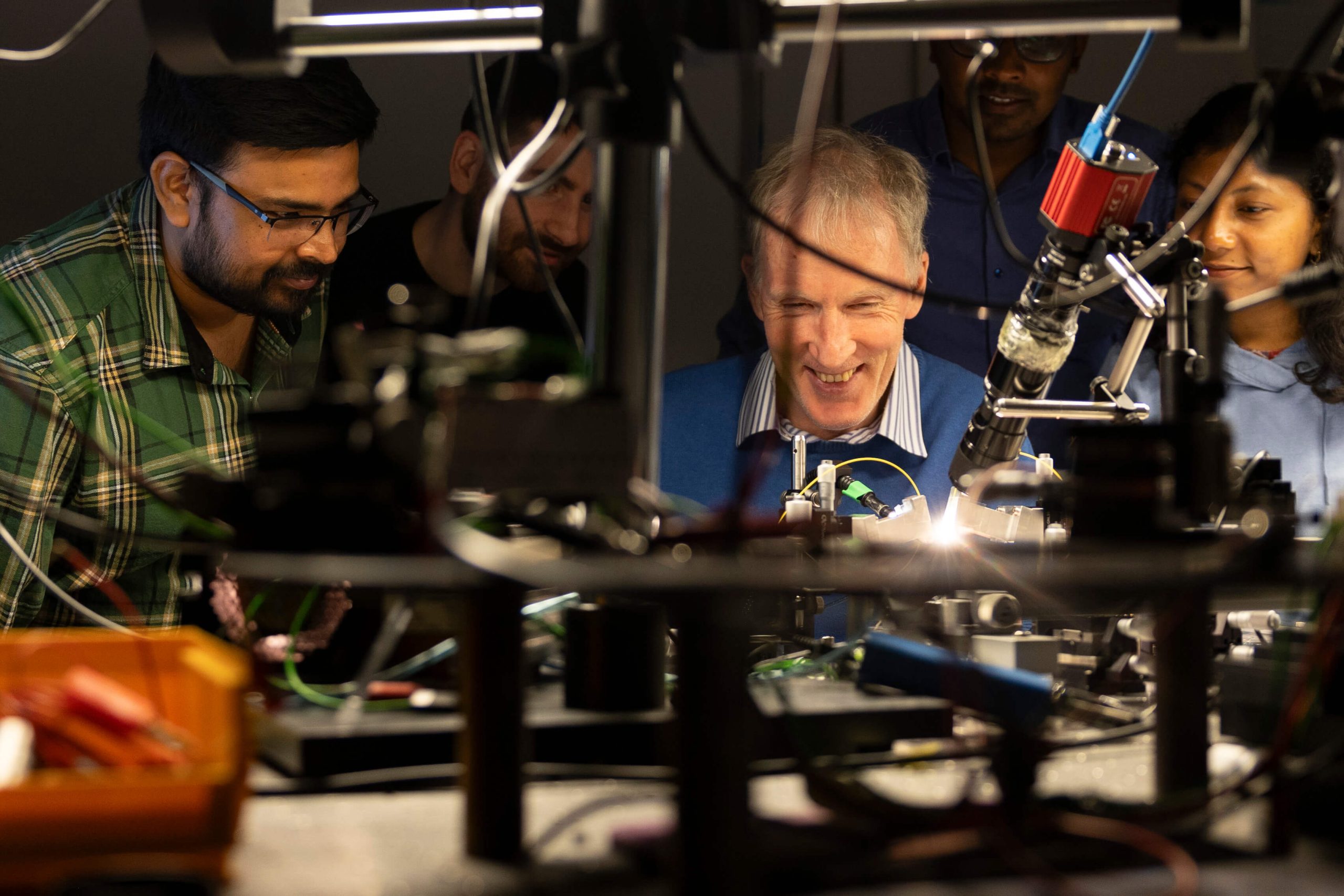
Postgraduate Research Training
Jumpstart your career with a postgraduate training programme at Tyndall!

Structured PHD Programmes
Discover more about Tyndall’s exciting new research-led structured PhD programme, PhD Engineering Science.

Student Publications
Find out more about our outstanding PhD candidates and their exceptional publications in our annual Postgraduate Publication of the Year competition results.

Education and Public Engagement
We offer a vibrant Public Engagement & Outreach programme to show audiences the diverse opportunities available across physics, electronics, photonics, materials and chemistry.
How to Apply
1. Browse vacancies on the Tyndall website
- Apply to a position offered on the Tyndall website
- CV and documentation will be reviewed by Tyndall
- An interview will be organised by the relevant supervisor
- If successful, Tyndall will send you an Offer letter
- Once the offer is accepted, you can then proceed to step 2.
2. Apply online through UCC Apply portal
- Apply online through UCC Apply portal (Postgraduate Application Process)
- Decide, with your supervisor, the programme to register with and start date (Sept, January, April OR July – we recommend you select a date that is at least 3 months prior to your commencement date to allow for your application to be processed and approved).
- Upload all documentation requested
- Submit your application.
The entire process may take 8-12 weeks to be completed, but it may take longer depending on the complexity of each application.
If visas are required, a visa application can only start when a full UCC letter of acknowledgement is received by the student on the UCC portal. This may take an additional 8 weeks. Please check UCC’s International Office for further information.
3. English Language Requirements
All applicants whose first language is not English must provide evidence of English language proficiency. English language tests must be undertaken no more than two years prior to commencement of a programme.
Please review UCC’s guidelines for English postgraduate language requirements and proficiency required.
4. Supporting documents
The following documents will be required in support of your application:
- Identification: Your Passport or Birth Certificate (applies to non-NUI graduates only). You will be registered in the name that appears on your passport or birth certificate.
- Qualifications: Evidence of all qualifications listed on your application, including transcripts of examination results for each year to date that have not been completed at University College Cork.
- Motivation Letter
5. Fees and Funding
Students may receive funding for their fees and maintenance from a number of different sources:
- Research Student Funding Awards
- Awards from Research Grants
- Students should discuss these with their supervisors.

Bespoke Training Courses
We run a set of emerging programmes and bespoke training for academics and industry-based individuals who would like to learn about the latest developments and scientific techniques. These bespoke training programmes include hands-on activities in our state-of-the-art laboratories and semiconductor fabrication facilities.

Moving to Ireland
Céad Míle Fáilte! One Hundred Thousand Welcomes!
If you’re looking for a worldclass education in a country that’s welcoming and abundant with future career opportunities, Ireland is your destination!
Ireland is the destination of choice for many international companies, with organisations such as Google, Apple, Meta, Intel, and Analog Devices headquartered here.
Ireland has the perfect lifestyle balance – vibrant, bustling cities, while also boasting some of the most spectacular natural beauty in Europe.
Education in Ireland
Ireland has a worldwide reputation for high quality education, with the Irish Government investing over 782 million annually in research across Ireland’s higher education institutions. University College Cork (UCC) is ranked in the top 2% of research led universities globally and our postgraduate research students work alongside internationally renowned researchers on a wide range of projects aimed at addressing global challenges.
Why Tyndall
As a key national institute, Tyndall’s world-class research teams perform ground-breaking research with an ‘excellent impact from excellent research’ philosophy, focusing on the delivery of value from research to the Irish economy. We work with industry and academia to transform research into products in our core market areas of electronics, communications, energy, health, agri-food and the environment.

